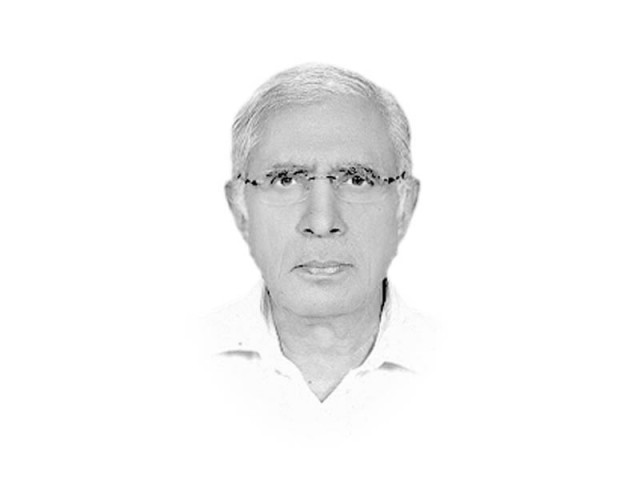Tracing the root causes of radicalisation
Lt General (retd) Tariq Khan has proposed a three-step formula for successfully tackling the menace of terrorism

The writer served as Executive Editor of The Express Tribune from 2009 to 2014
In a precisely focused talk on terrorism that he delivered the other day as part of Oxbridge series of lectures, Khan, who had retired from service in 2014, shared with the audience a brief check-list that he had used to test whether or not a military operation against the terrorists in an area had succeeded: 1) Do we control the roads in the area? 2) Do we control the entry and exit points of the area? 3) Have we won the hearts and minds of the people of the area? 4) Has the writ of the state been re-established in the area?
Talking about the inordinate delay in going against the terrorists in North Waziristan Agency (NWA), he squarely blamed the coalition forces led by the US as, according to him, despite having been given firm assurance that a brigade strength coalition troops would seal the Afghan border adjacent to NWA as Pakistani troops would move into the Agency no such action was undertaken by the coalition forces while Pakistan kept waiting.
Recipient of sword of honour and a war hero, Tariq Khan while tracing the root causes of radicalisation of our society did make a pointed reference to the Objective Resolution passed by Pakistan’s first constituent assembly and which now is part of our constitution. He also made a special mention of US contribution to the radicalisation process recalling that President Reagan used to equate the Afghan Mujahideen leadership with his own country’s founding fathers.
His reference to Justice Munir’s Report while he was discussing the genesis of terrorism in Pakistan was apt and decidedly revealing. In June 1953, a Court of Inquiry was established to look into disturbances in Punjab caused by agitation against the Ahmadiya minority group. The report of the Court of Inquiry headed by Chief Justice Muhammad Munir stated that “If there is one thing which has been conclusively demonstrated in this inquiry, it is that provided you can persuade the masses to believe that something they are asked to do is religiously right or enjoined by religion, you can set them to any course of action, regardless of all considerations of discipline, loyalty, decency, morality or civic sense.” It hinted “at the undesirability of the confluence of religion and state in Pakistan even for the purpose of binding its disparate ethnic elements together.”
When asked how long would it take for Zarb-e-Azb to conclude, Khan said in 2006 Pakistan was fighting for its survival and today the terrorists were fighting for their survival, which he believed indicated that it would not take too long for the war to come to a successful conclusion.
It was a candid talk. He spoke like a soldier. His answers to questions were as precise as was his talk. He reiterated frequently the three-step formula for tackling the menace of terrorism. He kept insisting that without these three steps no National Action Plan or NACTA would do the job. While one would like to share his faith in the proposed formula, putting the maulvi back into the mosque appears rather too challenging a job because our public-sector schools and colleges have been turning out half-baked maulvis since at least mid-1980s. And these half-baked maulvis turn into an intolerant street mob in no time with little or no provocation.
A directive issued by the University Grants Commission in 1983 had advised that textbooks should demonstrate that the basis of Pakistan was not to be found in racial, linguistic or geographical factors, but rather in the shared experience of a common religion. A 1978 Council of Islamic Ideology circular had proposed a scheme of “establishment of an Islamic society” seeking Islamisation of educational, economic, legal system etc., in the country. As a result, parallel to historians and the clergy, the work of strengthening the national Islamic ideology was also undertaken by educationists and textbook writers, supported by successive governments.
Published in The Express Tribune, October 22nd, 2016.
Like Opinion & Editorial on Facebook, follow @ETOpEd on Twitter to receive all updates on all our daily pieces.
















COMMENTS
Comments are moderated and generally will be posted if they are on-topic and not abusive.
For more information, please see our Comments FAQ